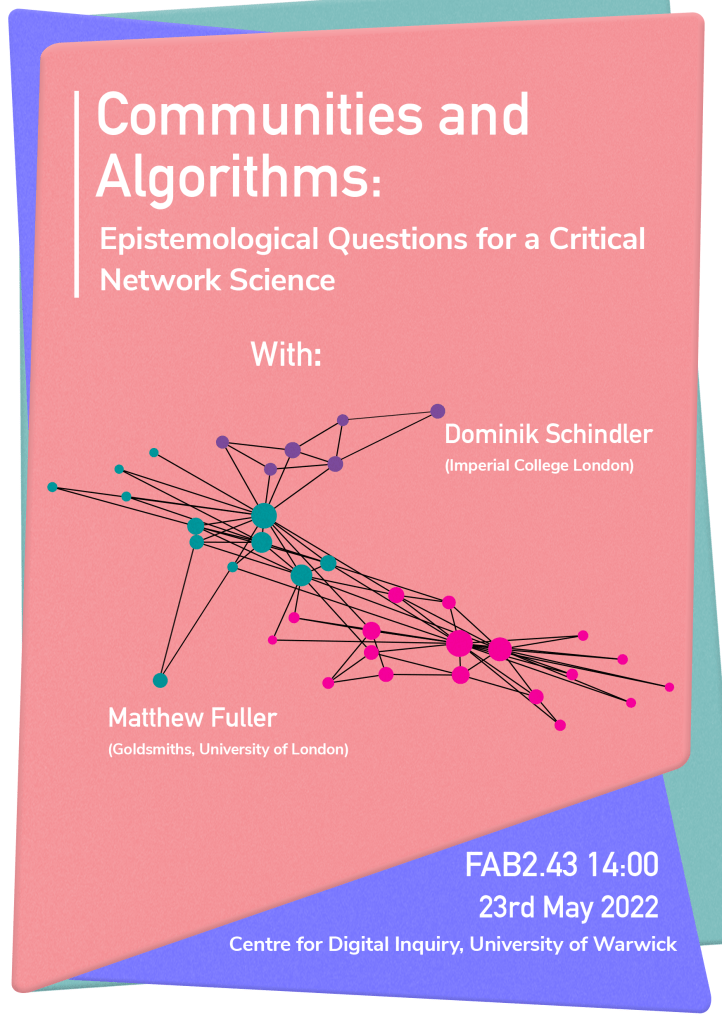EMERGENT NONFICTION LAB
The Emergent Nonfiction Lab explores new and evolving media technologies through critical, theoretical, and practice-based research. From early ethnographic forms of visual extraction to contemporary data surveillance and AI, media technologies used for documentation have long been entangled with colonialism, racial violence, and imperialist capitalism. Today’s regimes of media capture, prediction, and control are deeply rooted in these histories. While many critical frameworks still grapple with questions of truth, realism, and power within these legacies, the ENL seeks to push beyond them—foregrounding emerging modes of theory and practice that challenge and subvert dominant media forms. We approach emergence not as a neutral concept, but as a methodology for reimagining media beyond operational and extractive logics. Through talks, workshops, and seminars, the lab supports explorations of counter-hegemonic, speculative, reparative, and activist media practices that unsettle violent epistemologies and imagine alternative futures.
↓↓
↓↓
↓↓
UPCOMING EVENTS
The World According to Military Targeting, book talk and discussion with Erik Reichborn-Kjennerud, Online, 25th February 2025

PAST EVENTS
War in the Smartphone Age, book talk and discussion with Matthew Ford, Online, 3rd December 2025

Collateral Damages, book talk and discussion with Nadia El-Shaarawi, Online, 27th November 2025

Means of Control, Byron Tau book talk and discussion, Online, 15th October 2025

Late modern war and the geos, Mark Griffiths and Kali Rubaii, article discussion and talk, Online, 27th May 2025

Just Images, Stefan Tarnowski, article talk and discussion, Online, 27th March 2025
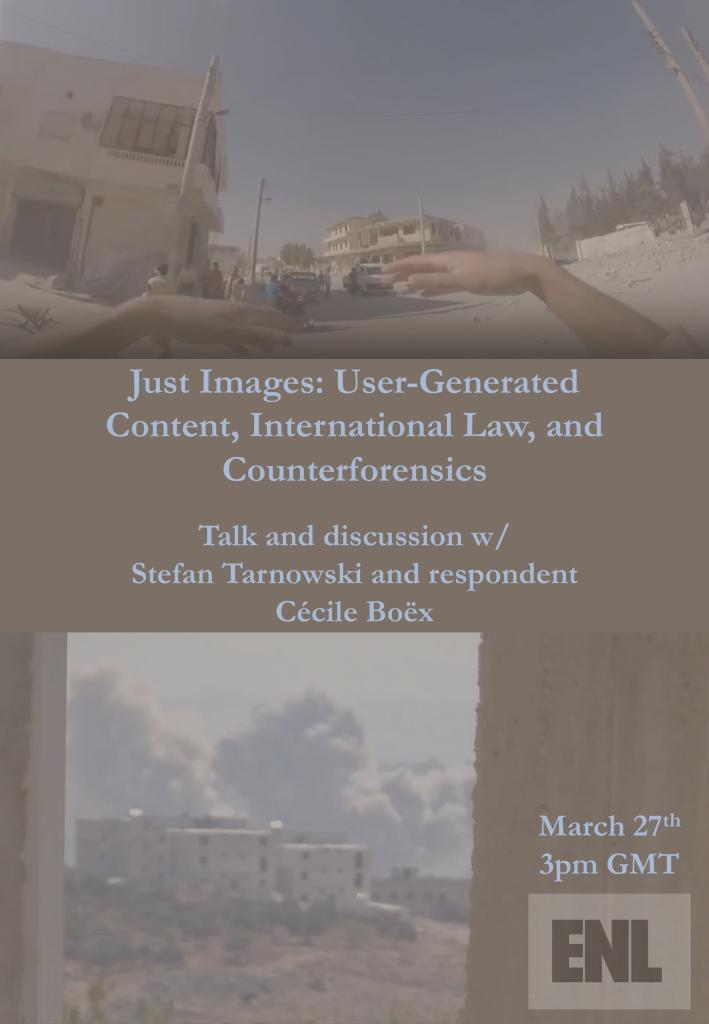
Basic Research, Lethal Effects, David Gray Widder and Sireesh Gururaja article talk and discussion, Online, 25th March 2025

War Virtually, Roberto J. González book talk and discussion, Online, 6th February 2025

Israel and the AI-Driven, Military-Industrial Complex, Jeff Halper and Lucy Suchman roundtable discussion, Online, 2nd September 2024
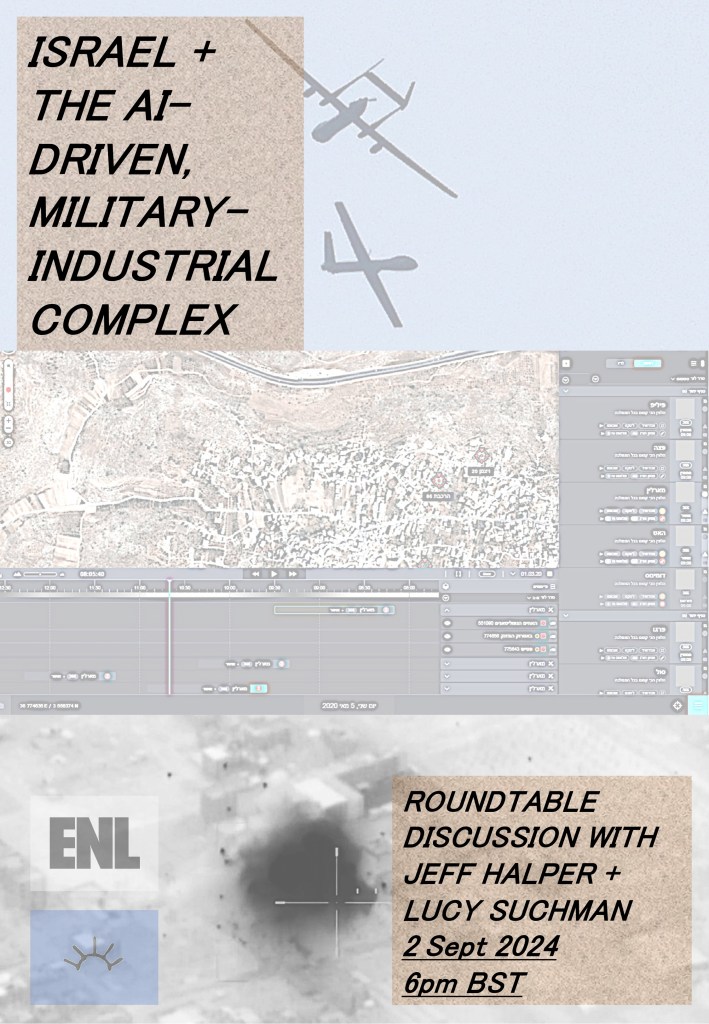
The Walls Have Eyes, Petra Molnar book talk and discussion, Online, 8th August 2024
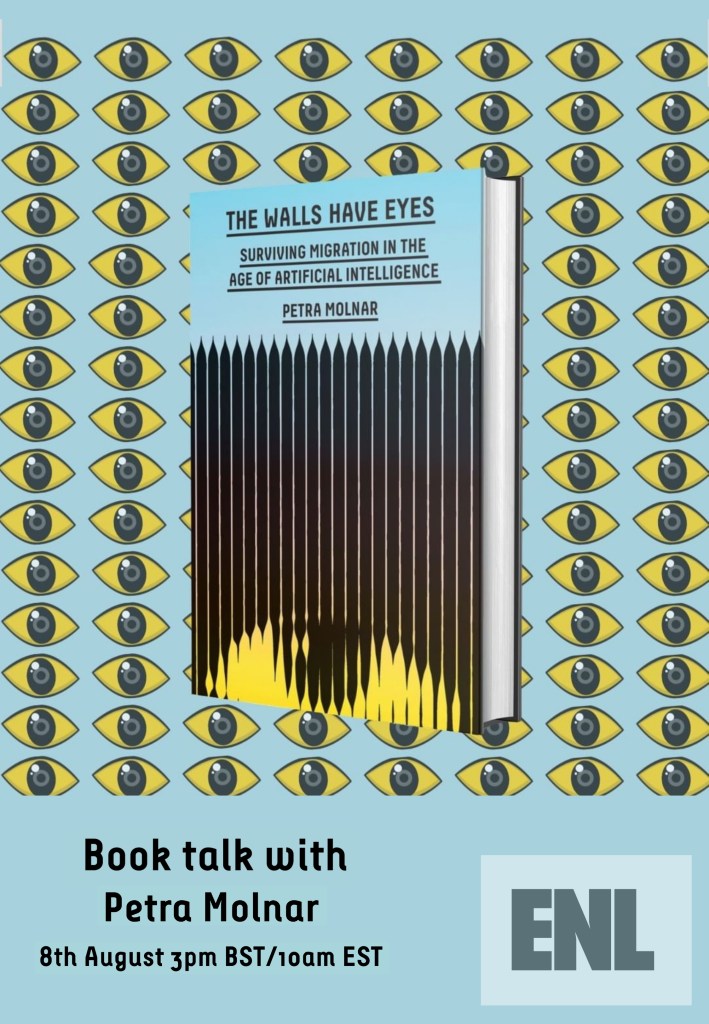
Manifest Excess, Jackson Polys artist talk and discussion, Online, 7th August 2024

Nonhuman Witnessing, Michael Richardson book talk and discussion, Online, 21st February 2024
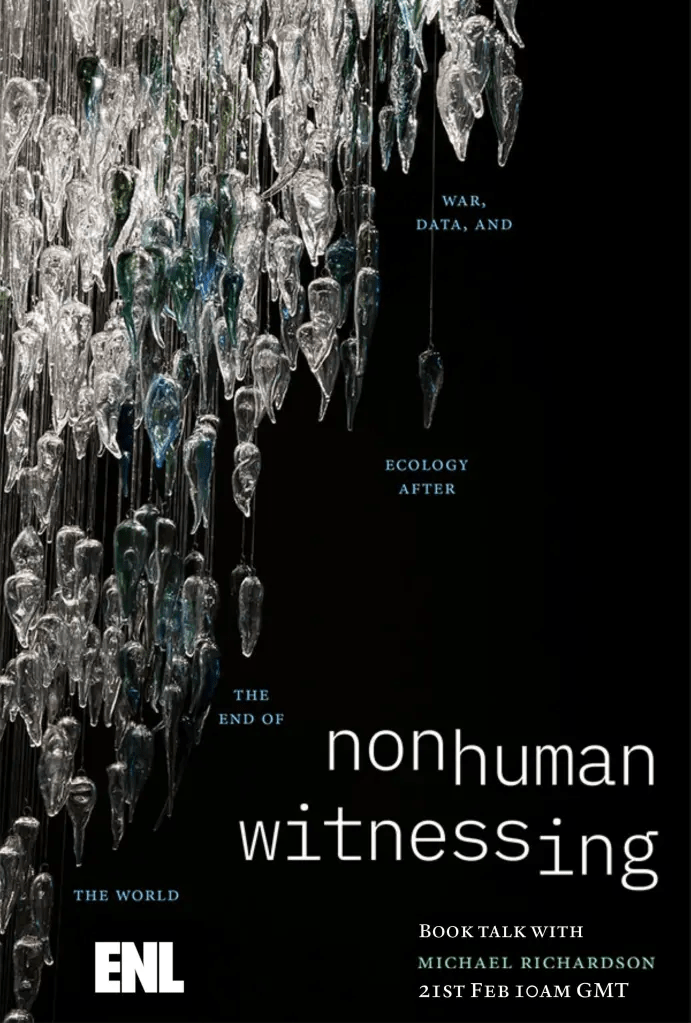
Legal Spectatorship, Kelli Moore book talk and discussion, Online/University of Warwick, 3rd November 2023
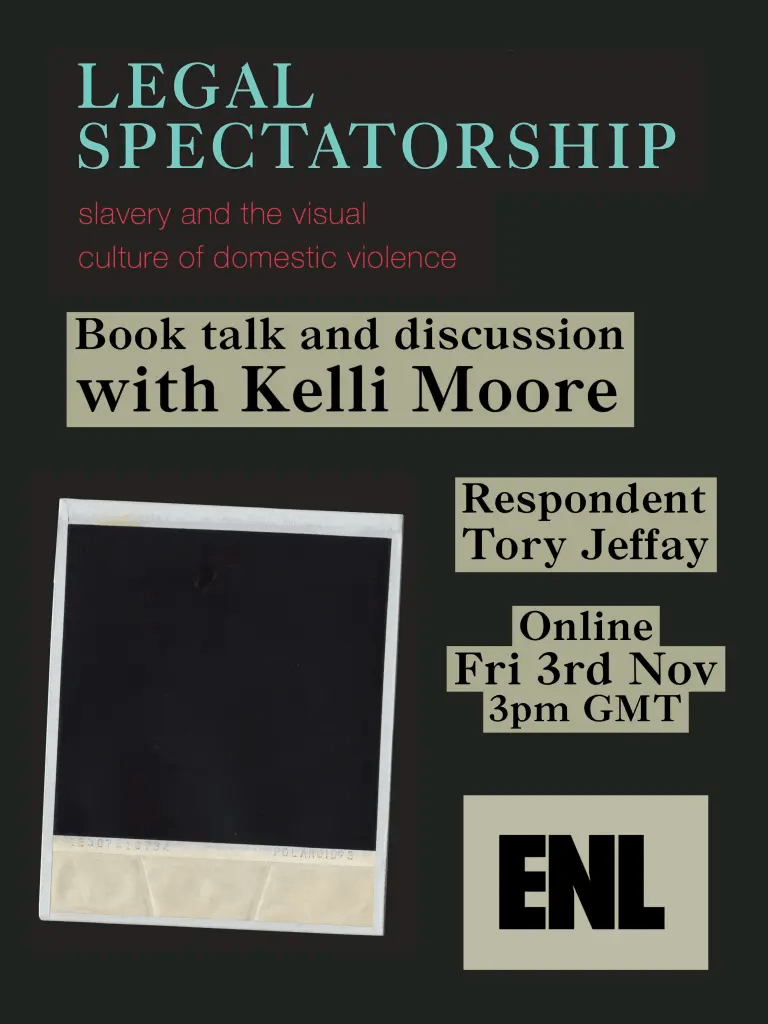
Riotous Deathscapes, Hugo ka Canham book talk and discussion, Online/University of Warwick, 22nd September 2023

Biopolitics of the More-Than-Human: Forensic Ecologies of Violence, Joseph Pugliese book talk and discussion, Online/University of Warwick, 23rd June 2023
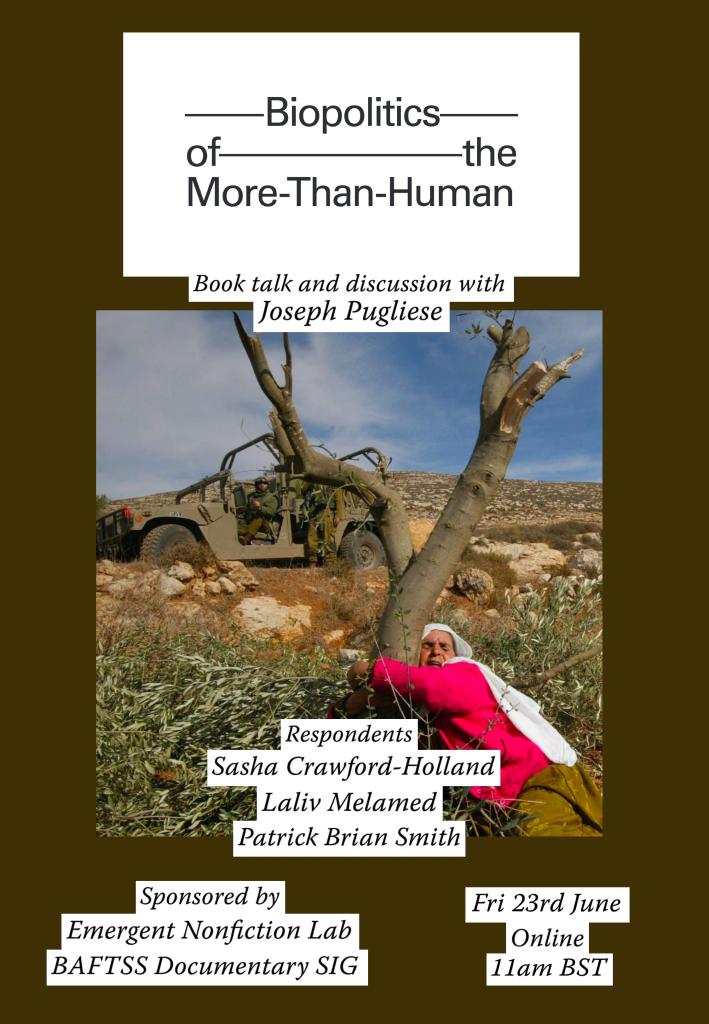
Sovereign Intimacy: Private Media and the Traces of Colonial Violence, Laliv Melamed public talk, Queen Mary University of London, 8th June 2023, co-sponsored by the Institute for the Humanities and Social Sciences and the BAFTSS Documentary Scholarly Interest Group
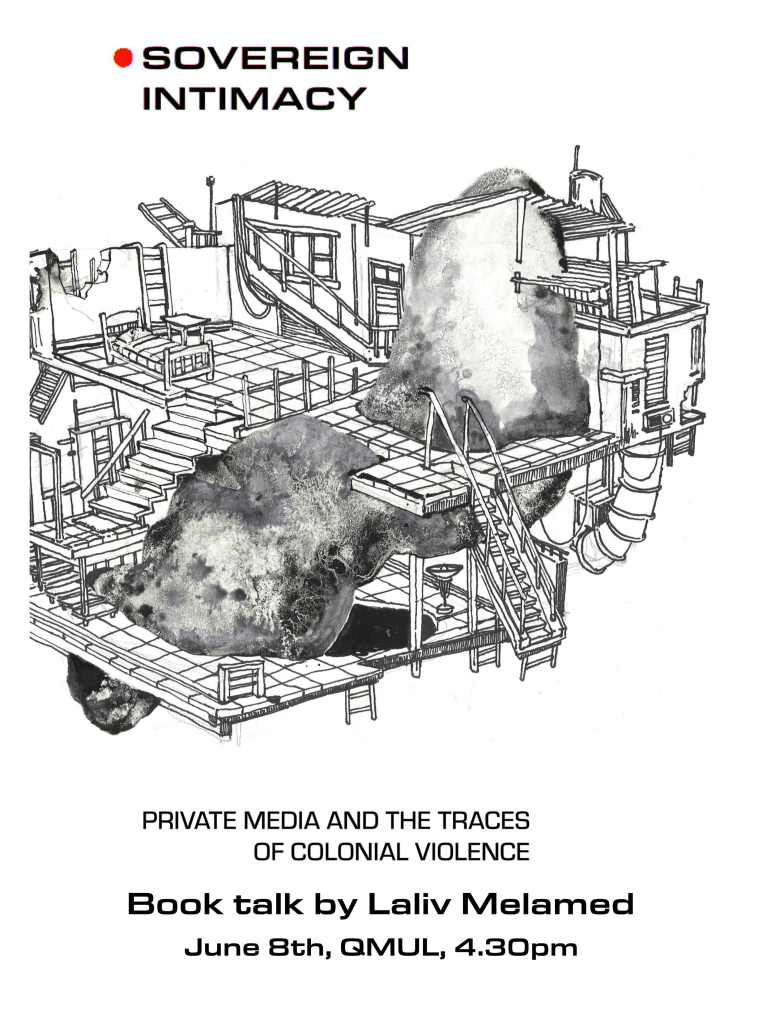
Virtual Returns: Rehearsing and Remediating Return in Palestinian Video Practices, Kareem Estefan public talk, Online/University of Warwick, 17th May 2023

Manufactured Evidence: A Black History of Forensics, Tory Jeffay public talk, Online/University of Warwick, 5th May 2023

Nonfiction Media Futures Reading/Screening Group, Emergent Nonfiction Lab, Meeting II: Languid Hands and Radical Black Testimonies, Online/University of Warwick, March 7th 2023

Nonfiction Media Futures Reading/Screening Group, Emergent Nonfiction Lab, Meeting I: New Red Order and Indigenous Counter-Epistemologies, Online/University of Warwick, January 31st 2023
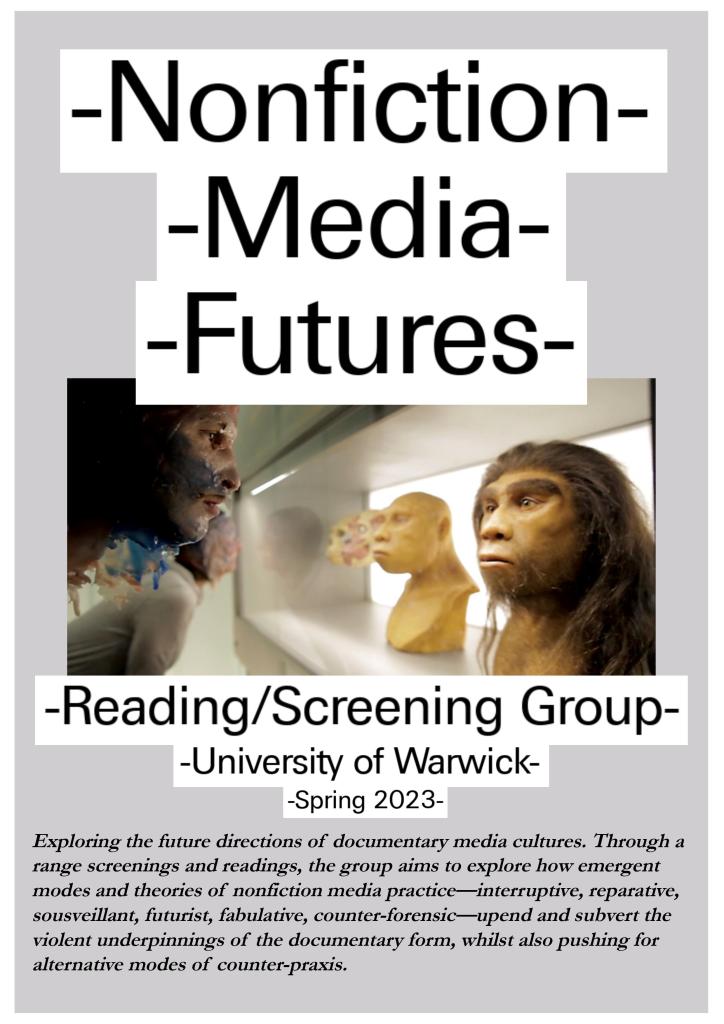
Futurist Forensics, Patrick Brian Smith public talk, Global Emergent Media Lab, Concordia University, Montreal, January 17th 2023

Forensic Knowledge and Mediation: Visual Methodologies Workshop, Online/University of Exeter, May 25th 2022
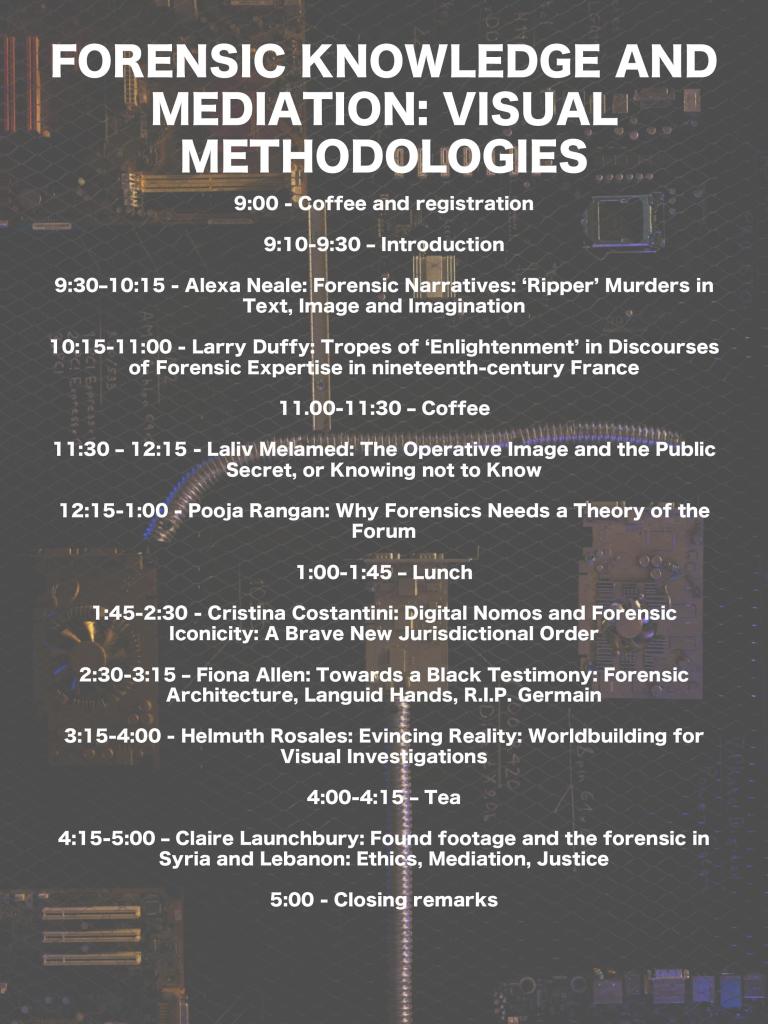
Communities and Algorithms: Epistemological Questions for a Critical
Network Science, Matthew Fuller and Dominik Schindler public talk, University of Warwick, May 23rd 2022
